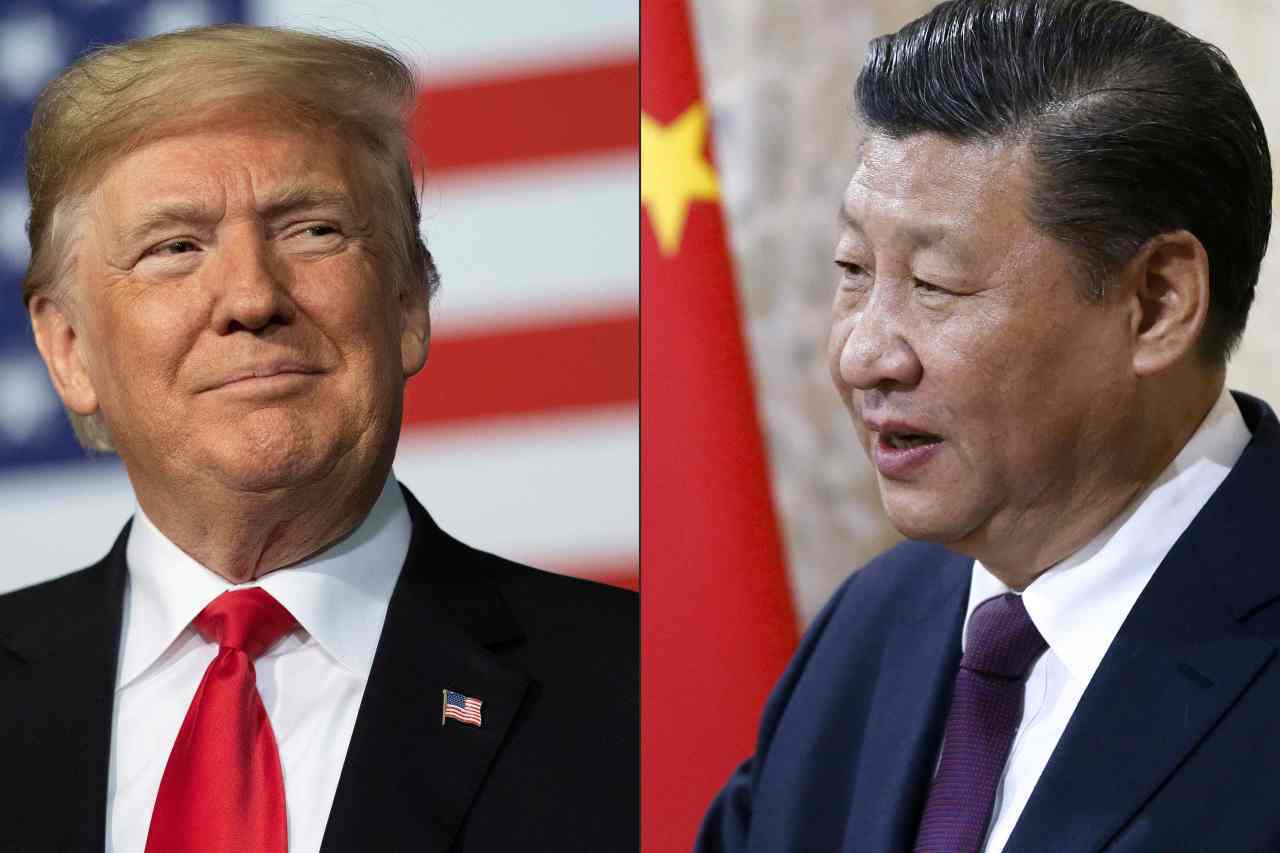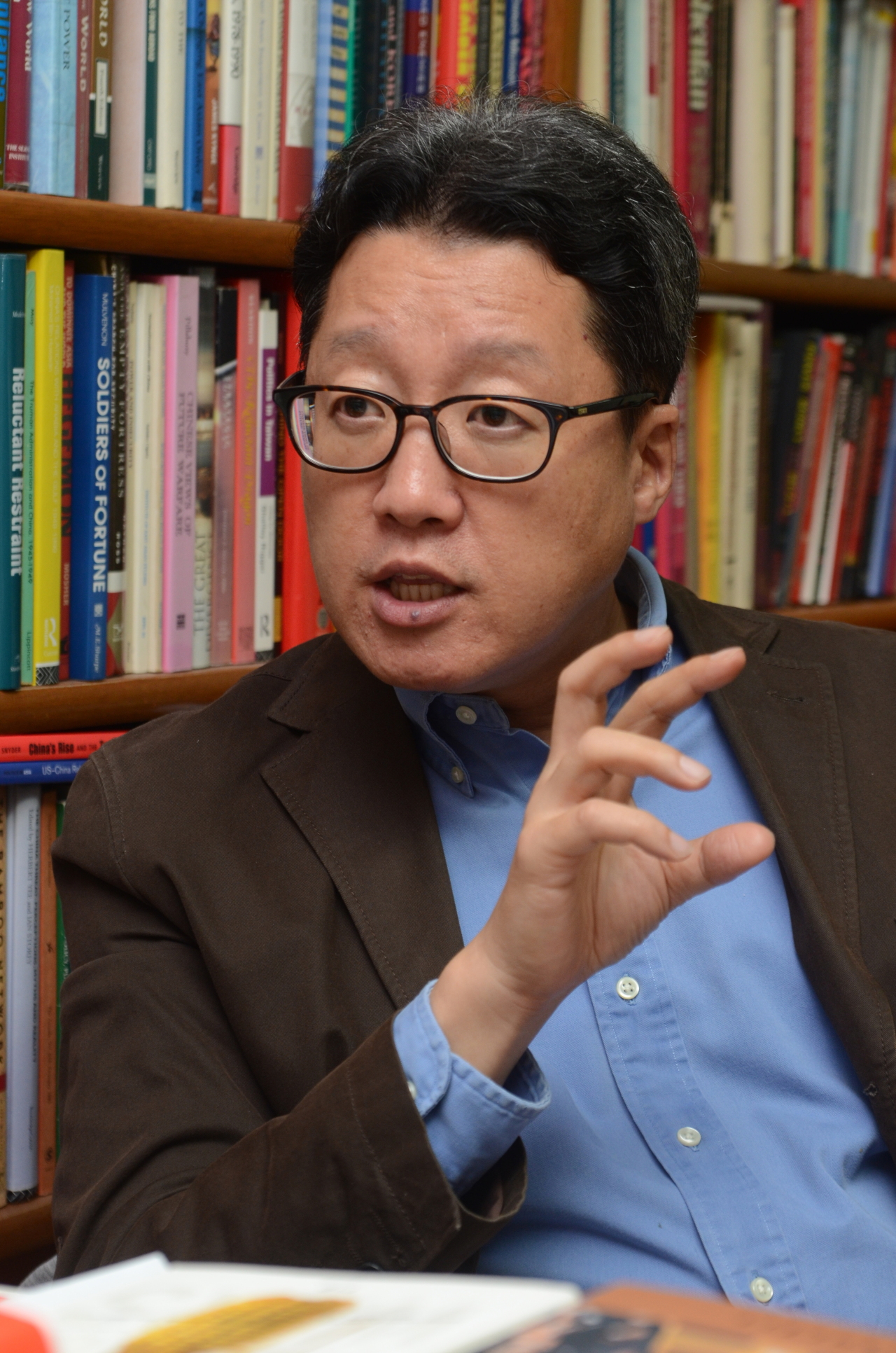'National interest key to Korea’s path amid US-China spat'
Consensus on diplomatic priorities needed but difficult to achieve, says international relations professor
By Ahn Sung-miPublished : June 7, 2020 - 16:44

The simmering conflict between the US and China is forcing South Korea to think about its own national interest, as pressure mounts from the two superpowers to pick a side, an international relations expert said.
Relying on the US for security and China for trade, Seoul has long had to juggle its loyalties between the two powers. But the latest developments are aggravating the conundrum, according to Chung Jae-ho, a professor of political science and international relations at Seoul National University.
“As the US-China strategic competition sharpens, Korea’s flexibility to choose will diminish even more,” he said in a recent interview with The Korea Herald.
The two powers are not only at odds over a wide range of issues including the military, economy, technology and culture, but the origin of the novel coronavirus raging across the world. They are flexing their muscles through proxies, asking countries “are you with us or not?” he explained.
So how should Korea decide?
As difficult as the decision is, the professor suggests the nation should go back to the fundamental question: What is in Korea’s national interest?
“When this question is asked, not many Koreans have the answer,” he said. “And without such agreement on national interest, how can we conduct diplomacy?”
National interest, referring to a state’s goals and ambitions, serves as a reference point when making decisions, be it trade, security or others. “It offers a threshold of decisions, regarding when to speak up or remain ambiguous,” said Chung. “Without a clear understanding of where national interest lies, our actions will end up being reactive and impromptu.”
A consensus on national interest will provide “sound guidelines” for diplomacy and “field manuals” for diplomats on the front line, he added.
Yet, forging a social pact on what should come first is becoming increasingly unfeasible these days amid aggravating social and political polarization, while the talk of national interest is often “monetized,” centering on aspects like “trade, investment or tourism,” he said.
Giving more practical advice, Chung said Korea could take an “issue-by-issue” approach, but that might not be an option if the US-China friction gets any worse.
Then, the questions to consider before taking a stance would be, “Whose values and norms does Korea share?” and “Whose punishment will be heavier?”
“If compelled to take a side, Korea will make a choice that will incur less damage, but this again boils down to what our national interest is, and in reference to it.”
Earlier this month, US President Donald Trump invited Korea to an expanded Group of Seven summit in September, along with three other countries. He later expressed his intention to invite Russia. But on the invitation to the Trump-envisioned G-11 or G-12 of advanced economies excluding China, many observers raised concerns that Korea could irk Beijing in being seen as siding with Washington at this precarious time.
“Whether it be G-11 or G-12, Korea must participate as it will constitute a useful platform for deliberating on key global and regional issues,” said Chung. “Participating and taking a stance on specific issues are two separate things. We need to refrain from worrying about things before they happen,” he added. Doing so, he said, is the mark of a “small-country mentality.”
Amid the heated US-China spat, the White House on May 20 released an important security document to the members of the US Congress that laid out the Trump administration’s views on China. In the 16-page document, titled “The United States Approach to the People’s Republic of China,” the US formalized its policy stance on the Asian giant, declaring the adoption of “a competitive approach.”
“The content is chilling,” commented Chung. “The document clearly indicates the US is taking a ‘whole-of-government approach’ to deter China. It states China and the US are competitive, and that China is engaged in an ideological battle with the US.”

Would this mean the Cold War 2.0?
"It’s getting there,” Chung said.
Asked if the result of the upcoming US presidential election would change Washington’s stance on China, the scholar said: “The direction will largely remain the same,” while rhetoric and style could change depending on who takes the helm of the country.
“Be it Democrats or Republicans, the Capitol or the White House, the cross-cutting consensus in the US is that ‘we’ve got China wrong for the past 20 years so we need to do something,’” he said. “When China was admitted to the World Trade Organization, the US government and officials thought the country would head toward democracy and the market economy. But that didn’t happen. China is becoming more authoritarian, and its state-owned enterprises are getting stronger especially after Xi’s appearance,” he said, referring to Chinese President Xi Jinping.
The US-China tussle comes as the world is witnessing a massive paradigm shift, he said. With the novel coronavirus outbreak, the return of geopolitics, the “fourth industrial revolution” and a financial crisis all underway simultaneously, the global order will undergo transformation, he explained.
One of the shifts is, Chung went on, deglobalization.
Even before the pandemic, globalization was in trouble. But with the pandemic, deglobalization is speeding up, he said.
“We see an increasing trend of reshoring, countries bringing their manufacturers back to home soil, localizing the resources, reducing interdependence on other countries and diversifying supplies,” he said. “As a result of deglobalization, the world will witness adjustments in the global value chain.”
Another concerning transformation is “securitization of every issue,” he explained. “In the past, security was related to mostly military aspects. But now, it’s not only missiles, but other issues from economy to culture, technology and public health are all becoming matters of security. This ‘securitization’ is apparent in the US-China conflict, with the two countries competing in all aspects, including virus and semiconductors.”
Chung also views the criteria of “advanced nation” could change. What matters is not just a country’s military and economic might, but whether it can deal with a crisis and protect its citizens.
“COVID-19 is the first global crisis when we have not seen US’ manifested leadership since 1950s,” he said. “We have seen many so-called ‘developed nations’ failing to contain the coronavirus. Can we still call these countries advanced, when they fail to protect life and wealth of their citizens?”
By Ahn Sung-mi (sahn@heraldcorp.com)


![[AtoZ into Korean mind] Humor in Korea: Navigating the line between what's funny and not](http://res.heraldm.com/phpwas/restmb_idxmake.php?idx=644&simg=/content/image/2024/04/22/20240422050642_0.jpg&u=)
![[Exclusive] Korean military set to ban iPhones over 'security' concerns](http://res.heraldm.com/phpwas/restmb_idxmake.php?idx=644&simg=/content/image/2024/04/23/20240423050599_0.jpg&u=20240423183955)



![[Graphic News] 77% of young Koreans still financially dependent](http://res.heraldm.com/phpwas/restmb_idxmake.php?idx=644&simg=/content/image/2024/04/22/20240422050762_0.gif&u=)
![[Herald Interview] Why Toss invited hackers to penetrate its system](http://res.heraldm.com/phpwas/restmb_idxmake.php?idx=644&simg=/content/image/2024/04/22/20240422050569_0.jpg&u=20240422150649)






![[Exclusive] Korean military to ban iPhones over security issues](http://res.heraldm.com/phpwas/restmb_idxmake.php?idx=652&simg=/content/image/2024/04/23/20240423050599_0.jpg&u=20240423183955)



![[Today’s K-pop] Ateez confirms US tour details](http://res.heraldm.com/phpwas/restmb_idxmake.php?idx=642&simg=/content/image/2024/04/23/20240423050700_0.jpg&u=)